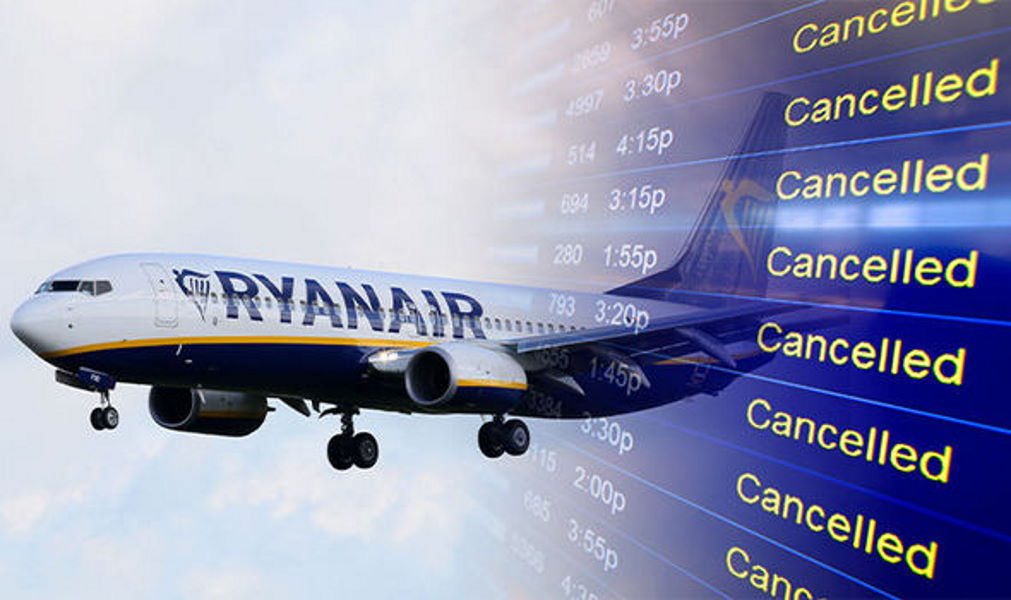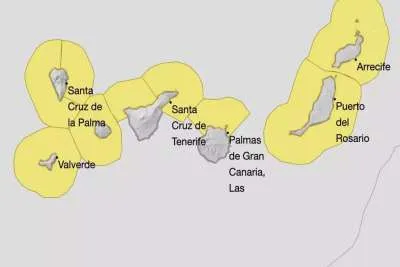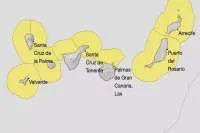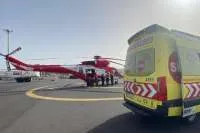Ryanair cancels 50,000 air seats with the Canary Islands due to drop in demand
- 12-01-2022
- Business
- Canarian Weekly
The reduction in bookings from the UK in January has led Ryanair to cancel 50,000 flight seats with the Canary Islands for the rest of the month. The low-cost airline say they are having to react this way to the effect of the travel restrictions imposed by the UK and Spanish Governments at the beginning of December, although they remain fully operational for February and March after the lifting of the UK Covid controls which has seen bookings increase.
After acknowledging the obvious damage caused by the UK’s measures to the archipelago's high season, the Canary Islands Minister of Tourism, Yaiza Castilla, assured yesterday that "the good global prospects for the rest of winter remain", as operators are expecting that the influx of English tourists will improve again after the relaxation of Covid requirements when returning home.
The objective of the Canary Islands Government and the business sector of Tourism is to close the winter season with 100% recovery of the levels of tourists that arrived in the islands the year before the pandemic. That goal was met in October and November, but it is a long way off again when looking at the December and January figures.
“We went from having arrivals in November that were above 2019 levels and now in January, after the Christmas holidays, we seen a drop of 10.3%, although for February the forecast of visitors from the United Kingdom is practically the same as in 2020 and in March it is 10.7% higher”.
Looking at January in more depth, Ryanair had 357,238 seats scheduled from Great Britain to the archipelago, when in 2019 there were 398,261. The balance is negative after their decision to cut flights reducing seats available by 50,000 due to lack of demand.
The forecasts remain positive for February and March with operators confident that this latest wave of Covid caused by the Omicron variant will begin to lose steam. For next month, the scheduled airplane seats from Ryaniar for the islands are 407,203, practically the same as in February 2019, while for March the planned seats add up to 471,192, 45,500 more than the same month prior to the pandemic.
EUROPEAN RESERVATIONS STAY HIGH:
As for other European countries, the data provided by the Minister of Tourism indicates that the declaration of Spain as a "high risk" area for travel, has not had a negative effect on reservations from Germany, the second highest tourist market for the Canary Islands.
The German Government now requires a COVID certificate to enter the country when returning from the islands or negative test, but this restriction is not having any effect on German tourism. "It seems that vaccinated people are losing their fear of the pandemic and there is no longer any fear of travelling to reliable places like the Canary Islands," says Yaiza Castilla.
The data of the Canary Islands Government indicates that the rest of the tourist markets continue to grow regarding air connectivity, although there is still the uncertainty of the evolution of the pandemic and the effect of any restrictions that may be imposed to curb the spread of the virus. That stability is what is saving the remaining weeks of January.
SCANDINAVIAN TOURISTS:
The islands are continuing to suffer from the Norwegian crisis, which is key for air connectivity with the Nordic countries. The low-cost airline has ended its long-range flights, in addition to drastically cutting operations with many Spanish destinations, including the Canary Islands.
Consequently, the archipelago still lacks regular flights to and from traditional destinations of its winter season, i.e. Sweden, Norway, and Finland, and direct connectivity is currently limited to charter companies who’s schedule are based on guaranteed demand.



























































